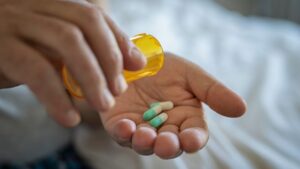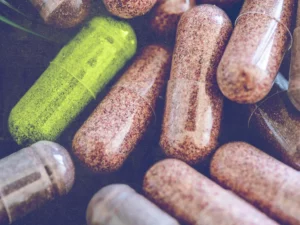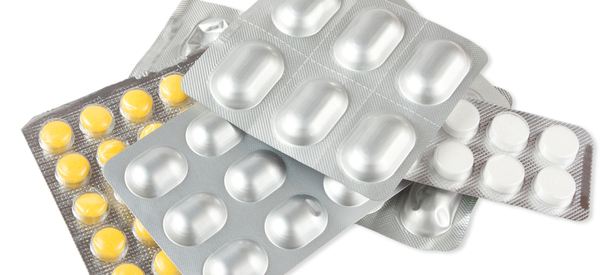The cornerstone of diabetes management is medication, alongside lifestyle changes. This blog aims to enlighten readers about the best medicines for diabetes treatment, offering insights into how they work and their suitability for different types of diabetes. Whether you’re newly diagnosed, seeking to optimize your current treatment plan, or just curious about the latest advancements, this guide will provide valuable information to help you navigate the complex world of diabetes medications.
Contents
What Are The Best Medicines for Diabetes?
 The best medicines for diabetes depend on the type of diabetes, individual health profile, and specific needs of the patient. It’s important to note that what works best for one person may not be the most suitable for another. However, here, we can provide an overview of commonly used medications for Type 1 and Type 2 diabetes.
The best medicines for diabetes depend on the type of diabetes, individual health profile, and specific needs of the patient. It’s important to note that what works best for one person may not be the most suitable for another. However, here, we can provide an overview of commonly used medications for Type 1 and Type 2 diabetes.
Type 1 Diabetes
For Type 1 diabetes, insulin therapy is essential as the body does not produce insulin.
1. Insulin
- Rapid-acting insulin (like lispro, aspart, and glulisine) is taken before meals to manage blood sugar spikes.
- Short-acting insulin (regular insulin) is also used for mealtime blood sugar control but has a slower onset.
- Intermediate-acting insulin (NPH insulin) covers insulin needs for about half the day or overnight.
- Long-acting insulin (like glargine, detemir, and degludec) provides a steady level of insulin throughout the day.
Type 2 Diabetes
Type 2 diabetes treatment often starts with oral medication and lifestyle changes, with insulin therapy introduced as needed.
- Metformin: The first-line medication for Type 2 diabetes. It improves insulin sensitivity and reduces glucose production in the liver.
- Sulfonylureas (like glipizide, glyburide, and glimepiride): These stimulate the pancreas to produce more insulin.
- DPP-4 Inhibitors (like sitagliptin, saxagliptin, and linagliptin): They work by reducing blood sugar without causing significant hypoglycemia.
- GLP-1 Receptor Agonists (like exenatide and liraglutide): These are injectable drugs that slow digestion and help lower blood sugar levels.
- SGLT2 Inhibitors (like canagliflozin and empagliflozin): They work by preventing the kidneys from reabsorbing glucose, thus increasing glucose excretion in urine.
- Thiazolidinediones (like pioglitazone and rosiglitazone): They improve insulin sensitivity but come with risks and are less commonly used now.
- Meglitinides (like repaglinide and nateglinide): Stimulate the pancreas to release more insulin but must be taken with care to avoid hypoglycemia.
- Alpha-glucosidase Inhibitors (like acarbose and miglitol): They slow the breakdown of starches in the gut, helping to lower blood sugar after meals.
Often, doctors prescribe a combination of these best medicines for diabetes to manage blood sugar levels effectively. The choice of medication is highly individualized, considering the patient’s overall health, the severity of diabetes, and specific health goals. It’s crucial to regularly monitor blood sugar levels and work closely with a healthcare professional to adjust the treatment plan as needed.
How Can I Choose The Best Medicine For Diabetes?
 Choosing the best medicine for diabetes is a critical decision that should be made in close consultation with your healthcare provider. Here are key considerations and steps to help you in selecting the most suitable diabetes medication:
Choosing the best medicine for diabetes is a critical decision that should be made in close consultation with your healthcare provider. Here are key considerations and steps to help you in selecting the most suitable diabetes medication:
Understand Your Type of Diabetes
Type 1 Diabetes usually requires insulin therapy as the body does not produce insulin. Type 2 Diabetes might be managed with oral medications, insulin, or a combination of both, depending on the severity and progression.
Evaluate Your Health Profile
Consider factors like age, weight, other health conditions (like heart disease, and kidney health), and any other medications you’re taking. Personal and family medical history can also influence the choice of medication.
Consider Medication Effectiveness
Different medications work in various ways to control blood sugar levels. Some increase insulin production, while others improve insulin sensitivity or reduce glucose absorption. The effectiveness of a medication can vary from person to person.
Assess Potential Side Effects
All medications have potential side effects. Discuss these with your healthcare provider and consider how they might impact your quality of life. Some side effects are minor, while others may be more significant and influence the choice of medication.
Lifestyle Considerations
Your daily routine, meal patterns, physical activity level, and ability to manage complex medication schedules should be considered. Medications that require strict timing with meals or frequent blood sugar monitoring may not be suitable for everyone.
Cost and Insurance Coverage
The cost of medication can be a significant factor. Check with your insurance provider about coverage. There may be generic or lower-cost alternatives that are equally effective.
Stay Informed about New Treatments
New medications and treatment approaches are continually being developed. Keep yourself informed and discuss these options with your healthcare provider.
Collaborate with Your Healthcare Team
Effective diabetes management is a team effort involving you, your doctor, possibly an endocrinologist, a dietitian, and other healthcare professionals. Open and regular communication with your healthcare team is vital for making the best choices for your diabetes management.
Remember, what works best can change over time as your body and health circumstances evolve. Regular check-ups and communication with your healthcare provider are essential. They will help in ensuring that you are always on the most appropriate medication for your needs.
What Reduces Blood Sugar Quickly?
To quickly reduce high blood sugar, especially in emergencies, it’s essential to follow the guidelines provided by your healthcare provider. However, some general strategies can help in reducing blood sugar levels quickly:
- Insulin Therapy
For those who are insulin-dependent, administering a rapid-acting insulin is the most direct way to lower blood sugar. This should be done according to a doctor’s prescription and guidance.
- Physical Activity
Engaging in quick, moderate-intensity physical activity can help lower blood sugar levels. Activities like brisk walking, jogging, or cycling encourage muscle cells to use more glucose for energy.
- Hydration
Drinking plenty of water helps the kidneys flush out excess sugar through urine. This can help in temporarily lowering blood sugar levels, although it’s not a substitute for insulin or other medications.
- Avoiding Carbohydrates
Skip meals or snacks that are high in carbohydrates, as these can raise blood sugar levels. Opt for low-carb options if you need to eat.
- Stress Management
Stress can impact blood sugar levels, so engaging in relaxation techniques like deep breathing, yoga, or meditation might help in some instances.
- Emergency Measures
If blood sugar levels are dangerously high, seek immediate medical attention. Extremely high blood sugar can lead to serious complications like diabetic ketoacidosis (DKA) or hyperosmolar hyperglycemic state (HHS).
Remember, these are general strategies and may not be suitable for everyone. It’s crucial to have a personalized plan for managing high blood sugar, developed in consultation with a healthcare provider. This plan should include clear guidelines on when to seek medical help. Additionally, regular monitoring of blood sugar levels is vital for people with diabetes to prevent both high and low blood sugar levels.
Which Tablet Is Best For Diabetes In India?
 In India, the choice of the best medicines for diabetes largely depends on the type of diabetes, individual health factors, and the specific needs of the patient. Metformin is often the first-line oral medication prescribed for Type 2 diabetes due to its effectiveness in lowering blood sugar levels, improving insulin sensitivity, and having a good safety profile. It’s generally well-tolerated and has the added benefit of being affordable, which is an important consideration in the Indian context.
In India, the choice of the best medicines for diabetes largely depends on the type of diabetes, individual health factors, and the specific needs of the patient. Metformin is often the first-line oral medication prescribed for Type 2 diabetes due to its effectiveness in lowering blood sugar levels, improving insulin sensitivity, and having a good safety profile. It’s generally well-tolerated and has the added benefit of being affordable, which is an important consideration in the Indian context.
Individuals with diabetes must consult with healthcare professionals to determine the most suitable medication, as the choice of drugs can be influenced by various factors. Additionally, lifestyle modifications like diet control, regular physical activity, and weight management play a vital role in managing diabetes effectively. As the field of medicine is continually evolving, staying informed about the latest advancements in diabetes treatment and maintaining regular follow-ups with healthcare providers is essential for optimal diabetes management in India.
Conclusion
In conclusion, effectively managing diabetes requires a combination of the best medicines for diabetes, tailored to individual needs, and a healthy lifestyle. Whether it’s through insulin for Type 1 diabetes or oral medications like Metformin for Type 2, the key is to work closely with healthcare professionals to find the best treatment plan. Alongside medication, incorporating a balanced diet, regular physical activity, and consistent blood sugar monitoring plays a crucial role.
Remember, each person’s journey with diabetes is unique, and staying informed, proactive in self-care, and regular consultation with your doctor are the cornerstones for successfully managing this condition. Do you want to get rid of diabetes? Join our online diabetes treatment program and reverse Diabetes naturally through lifestyle changes such as a Personalized Diet plan, Exercise, Yoga, dieticians, and health coaches.

